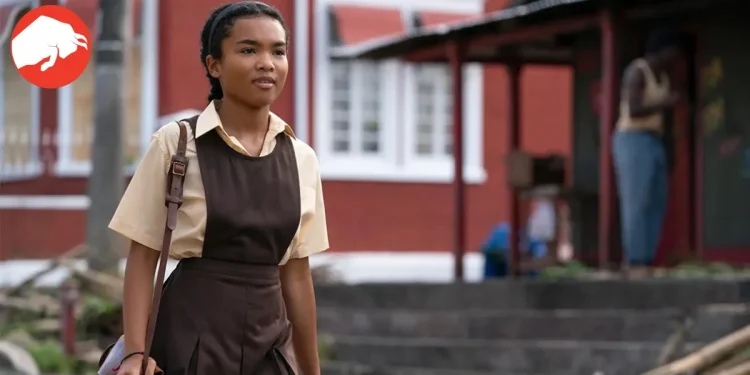The Unique Use of Recordings in Black Cake
“Black Cake” has employed an intriguing narrative tool in its storytelling – the use of Covey’s recordings. These recordings serve as a framing device, revealing critical aspects of the story to the main characters, Mabel, Benny, and Byron. In Episode 7, a particular instance stands out where Covey admits to lying about the timeline of her return to Gibbs after arriving in London. This revelation, while adding drama to the television series, raises questions about its effectiveness as a personal confession from a dying mother to her children.
“In a previous recording, she said that she found her way back to Gibbs almost immediately after arriving in London, she was lying. An entire year elapsed between Covey’s arrival and that reunion.”
This admission by Covey breaks the narrative’s illusion, making the audience feel more considered than the characters themselves. It’s a creative choice that serves the dramatic structure but may detract from the authenticity of the story as a personal confession.
The Emotional Turmoil of Covey in Episode 7
Young Covey’s Predicament
In the episode titled “Birth Mother,” young Covey discovers she’s pregnant and faces judgment and pressure from a doctor. Alone in London, she finds solace in a church-funded boarding house for unwed mothers, led by Sister Madeline.

“The nuns are clear — one of the first things she does is sign a form authorizing the church to find a suitable home for her baby once it’s born.”
The atmosphere at the boarding house, while supportive in some ways, reveals a darker side to the church’s involvement in the lives of young pregnant women.
The Dehumanization of Pregnancy
Covey and her fellow residents face a grim reality where their babies are treated more like numbers than human beings. This is starkly illustrated when Irene’s child is labeled “Baby Number Three”. Covey’s gradual attachment to her child contrasts with the harsh conditions they endure.
“A human life is reduced to just a number.”
This aspect of the episode highlights the emotional and physical struggles faced by these young women, trapped in a system that prioritizes procedure over humanity.
Covey’s Failed Escape and Its Consequences
The episode takes a dramatic turn when Covey, desperate to avoid losing her child, attempts to escape. However, she is dissuaded by Sister Madeline, and the next day, she finds her child, Mathilde, has already been taken by adoptive parents.

“Covey tries to push her way past the nuns and chase the car of the well-to-do family who have claimed her child as their own, but she’s unable to catch them.”
This heart-wrenching moment underscores the powerlessness and despair faced by Covey, a theme that resonates throughout the episode.
Episode 7’s Conclusion: Setting Up the Finale
The episode ends with a return to the present, where Mabel, Benny, and Byron are shown daffodils planted by Covey, symbolizing her enduring love and memory. The finale looms with the promise of revealing the identity of Little Man’s killer, hinted to be Pearl, and the expectation of another significant revelation.
“The ending montage implies it was Pearl, but apparently, there’s someone still alive who can reveal all.”
This sets up a compelling finale, leaving viewers eagerly anticipating the final unraveling of the mysteries woven throughout the series.









